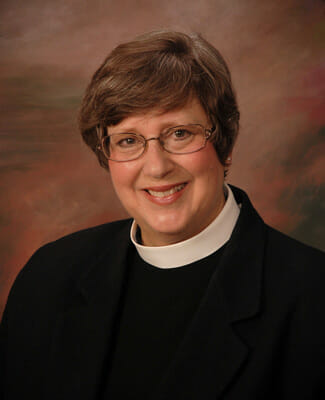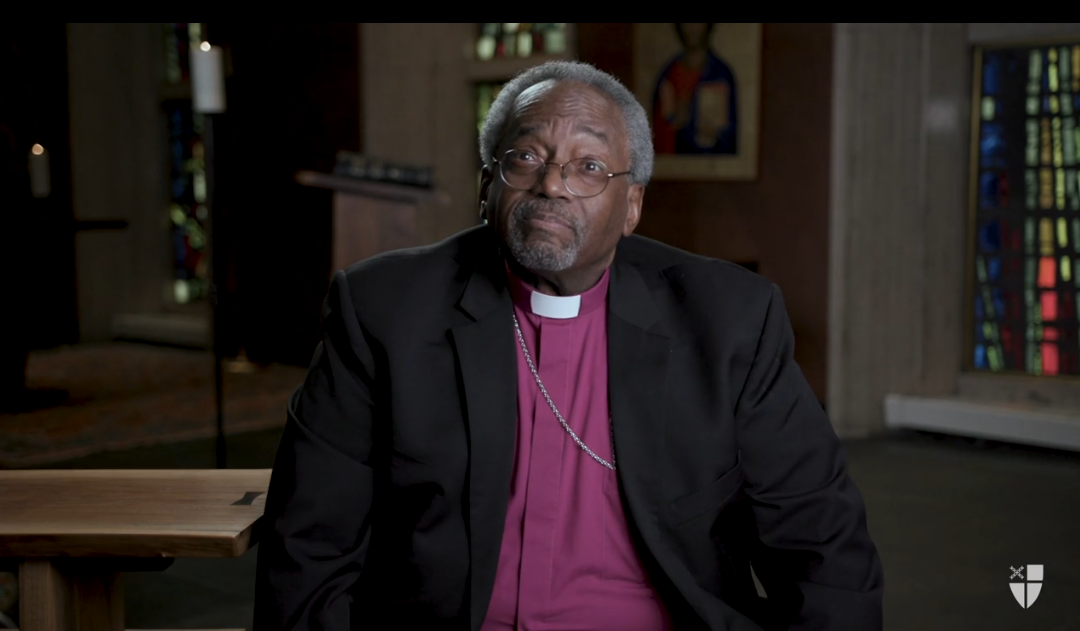June 1, 2020
We cannot continue to be silent. Too long we have refused to receive the breath of the Holy Spirit. Martin Luther King, Jr. said “There comes a time when silence is betrayal.” In our silence we have dismissed the indiscriminate killing and violence levied on people of color, and especially African-Americans. Breonna Taylor, Ahmaud Arbery and George Floyd are just the latest of a long list of people of color, known and unknown who have died because of our silence.
In that great hymn of the church, “Breathe on me, Breath of God” we ask God to Fill us with life anew that we may love as God loves and do what God would do. And yet our Black brothers and sisters cannot breathe. The breath of life is being choked out of them. The knees which bear down on their necks are our knees of White privilege, institutional and systemic racism. “I can’t breathe!” is something they have been trying to tell us for a long time. Our brothers and sisters can’t breathe. But we CAN breathe! And because we can breathe, it is time for us to stand up, give voice to their lament and outrage and voice to our lament and outrage. They can’t breathe, but we can; and we must breathe and
speak so that our breath can send out the word that what we have seen and heard IS UNACCEPTABLE.
If we remain silent, we will have betrayed our community. This is not a call to polarization. This is not about pitting the police as villains and the people they
are trying to arrest as the good guys. We are all beloved children of the God in whose image we all are created. But we are all pre-disposed toward actions of
evil; and it is toward those actions that we can no longer be silent. The cry for justice must be sounded out by all to whom the breath of life has been given.
Many will say that words are not enough; and indeed they are not. They must be coupled with action that is constructive and supportive of all life. The words that go out on our breath must be matched with actions that support our Baptismal promises to persevere and resist evil, to repent of sin, to proclaim the Good News of God in Christ, to seek and serve all persons loving our neighbors as ourselves, and to strive for justice and peace among all people, respecting the dignity of every human being. If we abandon these promises,
we have walked away from God.
But what can we do? We can begin to look at ourselves and to root out every trace of our own racism. And it exists within all of us. This idea distresses us, because we want to be good people, and the idea of racism is abhorrent to us. But it exists. And the sooner we begin to shine the light on it, the sooner we will be freed from its oppression; and then, maybe then, our brothers and sisters of color will also be freed. The Episcopal Church, in its efforts towards
“Becoming Beloved Community,” has developed a curriculum called Sacred Ground. Many churches are beginning to offer opportunities to participate in
this curriculum. If your church is one of them, please let the Diocesan office know. If you would like to find a group, please contact us, and we can help connect you. Our group on racial reconciliation, Repairers of the Breach, is working to update resources and action steps. Stay tuned through the Diocesan website, diosova.org.
I invite you to recall the Parable of the Good Samaritan. That wounded person is currently on the side of the road. That person cannot breathe. Are we going to stop and take action, or are we going to keep walking? What will we do so that one day everyone will be able to breathe.
Yours faithfully in Christ,
+Susan
The Rt. Rev. Susan B. Haynes
Episcopal Diocese of Southern Virginia


May 30, 2020
A word to the Church from Presiding Bishop Michael Curry:
“Our long-term commitment to racial justice and reconciliation is embedded in our identity as baptized followers of Jesus. We will still be doing it when the news cameras are long gone.”
In the midst of COVID-19 and the pressure cooker of a society in turmoil, a Minnesota man named George Floyd was brutally killed. His basic human dignity was stripped by someone charged to protect our common humanity.
Perhaps the deeper pain is the fact that this was not an isolated incident. It happened to Breonna Taylor on March 13 in Kentucky. It happened to Ahmaud Arbery on February 23 in Georgia. Racial terror in this form occurred when I was a teenager growing up black in Buffalo, New York. It extends back to the lynching of Emmett Till in 1955 and well before that. It’s not just our present or our history. It is part of the fabric of American life.
But we need not be paralyzed by our past or our present. We are not slaves to fate but people of faith. Our long-term commitment to racial justice and reconciliation is embedded in our identity as baptized followers of Jesus. We will still be doing it when the news cameras are long gone.
That work of racial reconciliation and justice – what we know as Becoming Beloved Community – is happening across our Episcopal Church. It is happening in Minnesota and in the Dioceses of Kentucky, Georgia and Atlanta, across America and around the world. That mission matters now more than ever, and it is work that belongs to all of us.
It must go on when racist violence and police brutality are no longer front-page news. It must go on when the work is not fashionable, and the way seems hard, and we feel utterly alone. It is the difficult labor of picking up the cross of Jesus like Simon of Cyrene, and carrying it until no one – no matter their color, no matter their class, no matter their caste – until no child of God is degraded and disrespected by anybody. That is God’s dream, this is our work, and we shall not cease until God’s dream is realized.
Is this hopelessly naïve? No, the vision of God’s dream is no idealistic utopia. It is our only real hope. And, St. Paul says, “hope does not disappoint us, because God’s love has been poured into our hearts by the Holy Spirit” (Romans 5:5). Real love is the dogged commitment to live my life in the most unselfish, even sacrificial ways; to love God, love my neighbor, love the earth and truly love myself. Perhaps most difficult in times like this, it is even love for my enemy. That is why we cannot condone violence. Violence against any person – conducted by some police officers or by some protesters – is violence against a child of God created in God’s image. No, as followers of Christ, we do not condone violence.
Neither do we condone our nation’s collective, complicit silence in the face of injustice and violent death. The anger of so many on our streets is born out of the accumulated frustration that so few seem to care when another black, brown or native life is snuffed out.
But there is another way. In the parable of the Good Samaritan, a broken man lay on the side of the road. The religious leaders who passed were largely indifferent. Only the Samaritan saw the wounded stranger and acted. He provided medical care and housing. He made provision for this stranger’s well-being. He helped and healed a fellow child of God.
Love, as Jesus teaches, is action like this as well as attitude. It seeks the good, the well-being, and the welfare of others as well as one’s self. That way of real love is the only way there is.
Accompanying this statement is a card describing ways to practice the Way of Love in the midst of pandemic, uncertainty and loss. In addition, you will find online a set of resources to help Episcopalians to LEARN, PRAY & ACT in response to racist violence and police brutality. That resource set includes faithful tools for listening to and learning from communities too often ignored or suppressed, for incorporating God’s vision of justice into your personal and community prayer life, and for positively and constructively engaging in advocacy and public witness.
Opening and changing hearts does not happen overnight. The Christian race is not a sprint; it is a marathon. Our prayers and our work for justice, healing and truth-telling must be unceasing. Let us recommit ourselves to following in the footsteps of Jesus, the way that leads to healing, justice and love.

